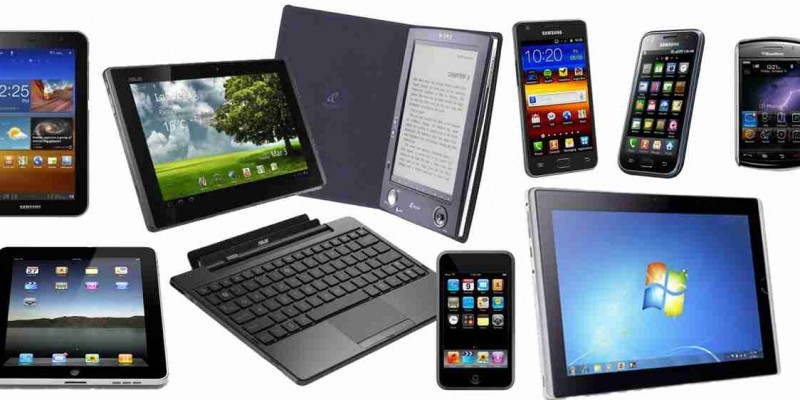
2010 – 2011: Mobile Technology Study
MOBILE TECHNOLOGY STUDY Executive on Demand Position: Chief Operating Officer, Vice President Sales and Marketing, Vice President Information Technology, Vice President Research and Development Project Outline: Evaluate the use of the emerging mobile technologies as business tools for an organization. The following factors were considered while undertaking the market research:
- Many companies now have staff working from home
- Traveling by air has new regulations requiring travelers to carry lighter and fewer pieces of luggage including cabin carry-on
- Understand the type and format of information and the best method of displaying/printing the data
- The need for multiple power packs due to incompatible/flexible power sources for technology devices used (mobile phone, laptop, tablet, etc…)
- Should data be delivered by mobile data access or WIFI or both
- Is information access (data) in foreign countries easily available and affordable
Project Outcome: As a frequent international traveler I am very sensitive to the quantity and weight of stuff that take with me. The extended trips (3 to 8 weeks in length) several times per year across at least 12 time zones can be exhausting at the best of times. Modern day luggage is light weight and a frequent traveler usually can pack the necessary wardrobe with ease to meet the airline requirements and most importantly ensure that he can uproot and move from one destination to another using a wide range of transportation options. When the travel is business it is also important to travel with a second bag that contains the information necessary to conduct the planned business affairs. The miniaturization of technology has provided technology that can be very light weight for travel but the smaller lightweight computers tend to lack in computing power. In addition, many business people have difficulty parting with the large screens (17 inch or larger) and as a result the computer technology used can be heavier than is really wanted. As an early adopter to technology I feel that the latest trend in mobile technology is getting very close to delivering the ultimate light weight business computing tools. The computing power in today’s modern smartphones and the introduction of tablet computing are changing the business traveler’s definition of the right technology to travel with rather than too much for too little. During the past 18 months I have traveled with a broad range of smart technology products. I did this as I wanted to evaluate the ability to conduct the day to day business in foreign countries without the support of a regular laptop. The tests ongoing, travelling internationally with several mobile products on each trip for several weeks. The mobile technology evaluated during these trips are as follows:
- Apple iPod Touch – Inactive
- Apple iPad – Inactive
- Blackberry Storm (locked and unlocked) – Inactive
- Samsung Galaxy SI Smartphone (unlocked) – Inactive
- Samsung Galaxy 7 in. Tab (OS replaced with European version for phone capability) (unlocked) – Active
- Samsung Galaxy S2 Smartphone w/Honeycomb OS (unlocked) – Active
- Sony eReader – Inactive
- Asus TF 101 Transformer Tablet with detachable keyboard – Active
- Asus EP121 Slate Windows Tablet (Upgraded to Win 8 Pro) – Active
- Samsung Galaxy S3 Smartphone upgraded to Kit Kat OS (unlocked) – Active
- Samsung Galaxy 7.7 Tablet/Phone upgraded to Jelly Bean OS (unlocked) – Active
- Samsung Galaxy S4 Smartphone upgraded to Kit Kat OS (unlocked) – Active
- Samsung Note 8 Note Tablet/Phone (unlocked) w/Jelly Bean OS – Active
- Asus Vivo Tablet Win 8 RT upgraded to Win 8.1 – Active
- Microsoft Surface Tablet upgraded to Win 8 Pro – Active
- Samsung Gear Smartwatch upgraded to Tizen OS – Active
The mobile technology used during the test is representative of the hardware and operating systems available in today’s market place. The learning objectives for this test were as follows:
- Battery life
- WiFi connectivity – especially in foreign countries
- 3G connectivity and data access in foreign locations (local SIM cards)
- Ease of navigation
- Receiving and sending email with and without attachments
- Document compatibility with MS Office
- Availability of quality business oriented apps and ease of installation and use
- Ease of use of communication tools such as Skype and SMS programs
- Electronic storage and access of business documentation on device and cloud service
- Integration of email, contacts, calendar and Task activities between all devices at the same time (maintain data in one system and transparently synchronize)
- Ability to play entertainment files audio and video (HD format)
- RSS Newsfeed formatting and readability
- Book and document library access and populated
The results of the tested mobility products varied however, I do have my favorites. There is no clear winner as each smart product do have their strengths and their weaknesses. For the type of travel and business that I deal with while traveling the most suitable tools are my Samsung Galaxy S4 phone and the Galaxy Note 8 Tablet.
